Welfare and whip among talking points as top figures debate the next decade
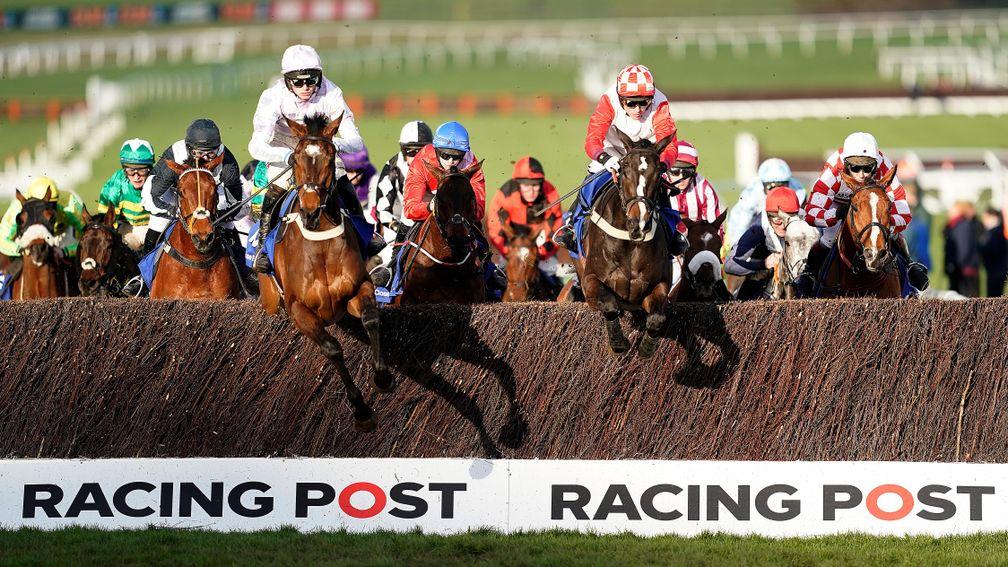
A new decade has arrived. When it ends horseracing could, and likely will, look very different.
Across the paragraphs that follow, figures from racing, bloodstock, gambling and the media, individuals based in Britain, Ireland, Australia and Japan, offer their perspective on what the 2020s might hold in store.
These are long-range predictions and aspirations. We hear what our interviewees think will happen and what they hope will happen.
They talk about globalisation, the importance of the Flat Pattern, how we will watch the sport on television, ageing jump jockeys, staffing racing yards, the future of betting shops and much more – with no subjects more regularly brought up than welfare and the whip. There are challenges, opportunities and dangers, potential risks and potential rewards.
This is the future in a feature – and it is presented with the interviewees in alphabetical order, a tried-and-tested approach that seems likely to survive the decade, whatever else changes.
Kenny Alexander: responsible gambling will be key
As chief executive of GVC Holdings, parent company of Ladbrokes and Coral, Kenny Alexander is set to help shape the future of both racing and betting in the 2020s. He expects the link between the two to remain strong.
"I think we should approach the decade with optimism," says Alexander.
"Racing is a great sport and it remains very important to the industry and GVC – if all the favourites go in on a Saturday afternoon Ladbrokes and Coral still take an absolute battering! There is probably a bit too much in-house fighting, which takes a shine off the core product, but over the next decade there is no reason why racing shouldn't continue to prosper."
Over that decade – as during the decade about to end – the subject of responsible gambling is poised to be of paramount importance.
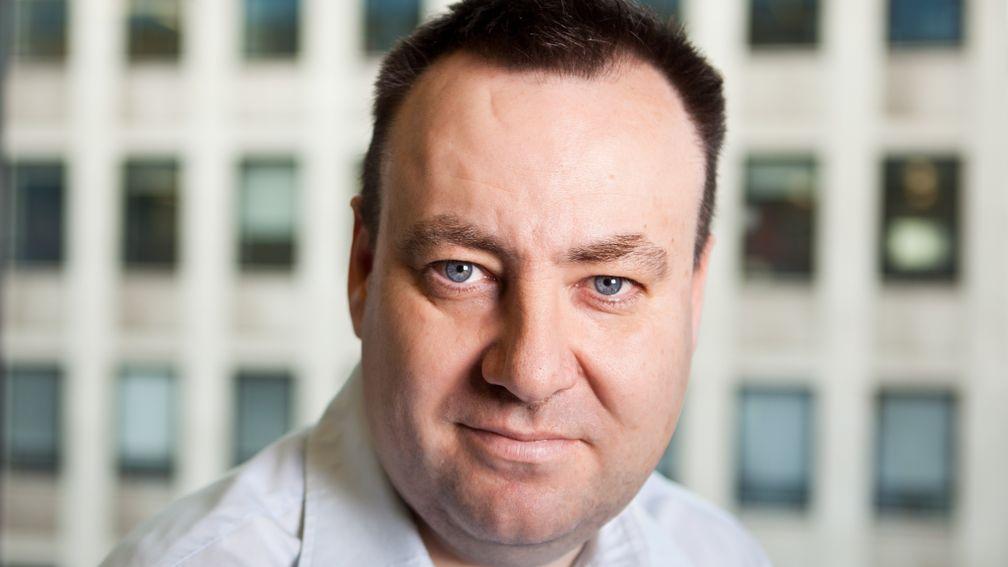
"Responsible gambling will be key," says Alexander. "It represents the biggest challenge for the industry but also the biggest opportunity because there is no future for this industry in encouraging problem gamblers. It should be entertainment and we must do all we can to stop people crossing the line into the danger zone."
Too many people have already crossed that line. It is one reason why the bashing of bookmakers by politicians and the media became a popular pastime in an era when fixed odds betting terminals were dubbed the crack cocaine of gambling.
"I'm not sure we were demonised but in certain parts of the media and elsewhere we were attacked," says Alexander.
"The reason was the triennial review and FOBTs. I've said many times I wasn't part of it, as we didn't then own Ladbrokes and Coral, but I do think the industry should have been more proactive in addressing the issue. By not addressing it proactively the industry got beat up and three years of avoidable bad headlines followed.
"The industry has learned its lesson. It was easy to criticise the industry around FOBTs. I think it's less easy to criticise us now. The staunchest critics may never change their opinion but those with more balanced views will see we're more responsible, more proactive and taking the issue more seriously. I think the worst of it is over, for sure."
With the maximum stake on a FOBT machine now reduced to £2 from £100, bookmakers have begun closing betting shops. Alexander, whose business has a considerable retail presence, does not, however, believe betting shops are an endangered species.
"I think a decade from now there will still be betting shops," he says.
"Their number will gradually decline but even before the triennial review everyone was closing a small number. Betting shops remain part of the UK's social fabric. We've scaled down and closed some shops but we still expect to retain a significant estate in ten years' time."
Yet Alexander does not expect to be unduly damaged by the revamped and reborn British Tote, whose new owners have major plans for the coming years.
"I wish them luck – not too much luck, obviously – but I think they face a difficult challenge," he forecasts.
"People here are more culturally aligned to fixed-odds betting, which means it will be tough to move people towards pool betting. They have some excellent people, including Mark Kemp, who came from GVC. If their team cannot make it work nobody can, but personally I think they'll struggle."
Simon Bazalgette: debate the whip and merge the racing channels
There were few more powerful people in racing through the last decade than Simon Bazalgette, who in the autumn of 2019 stepped down as group chief executive of the Jockey Club after spending 11 years in the role. Having relinquished that position, he can now assess the landscape with an independent mind.
"I'm optimistic because racing is a great sport and still part of British life, although perhaps not to the extent it once was," says Bazalgette. "Do I think over the next five to ten years racing will double in size? No. However, over the same period and in the right circumstances the sport could certainly grow."
According to Bazalgette the most important issue over that period will be welfare – with the most headlines arguably set to be made by the whip.
He argues: "The BHA, horsemen and racecourses need to have a debate about the whip – and it won't be easy. At the moment it feels as though there is a fear of having that debate.
"People are now much more sensitive and have far less knowledge about how to deal with horses. The truth is you're not going to be able to explain to those people why the whip is not much of a welfare problem. Equally, I don't think it's true to say the whip is not a welfare problem. Whether or not the whip causes damage is one thing, but it clearly has some effect based around fear, which is potentially a welfare issue.
"I hope in perhaps closer to five years than ten the sport will be brave. I accept the whip will still be needed for safety but I think racing will be in better shape for the longer term if it is not used for encouragement. I don't believe it would make racing any less exciting to watch and it would allow the sport to send out a clear consumer message. I also cannot see anything that would be a deal stopper to moving towards that happening."
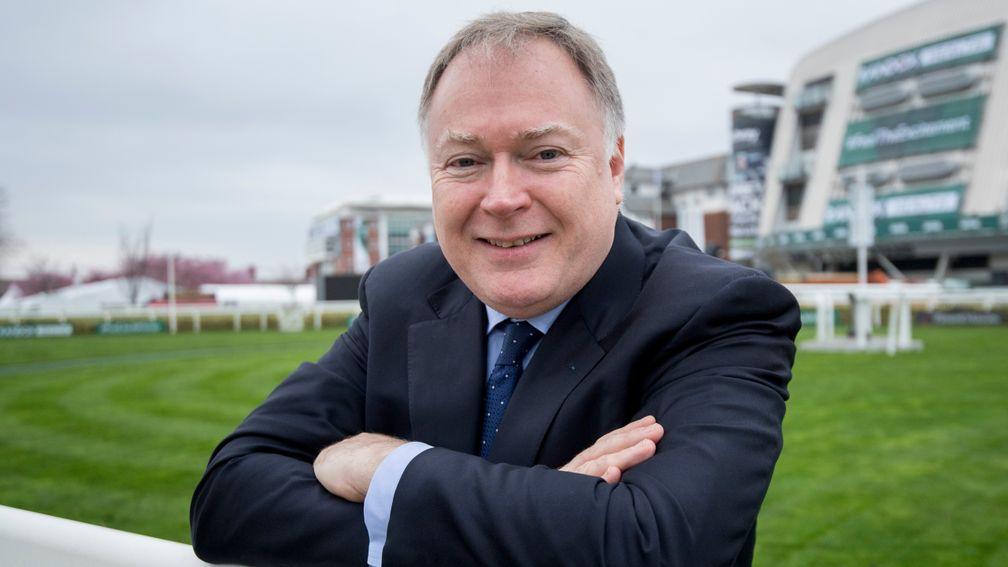
A push towards greater diversity and inclusivity has become increasingly obvious in recent years. Bazalgette approves and wants more of it.
"I've never found racing restricted or closed but it does invent itself in a certain image," he says. "The trick is to find ways of building relationships and engagements in places we don't normally look. If we can do that I think we'll find a new audience and that can only be good news for the sport."
What about racing's television audience? In 2004 Bazalgette became the founding executive chairman of Racing UK (now Racing TV). When working for the Jockey Club he was instrumental in the sport leaving BBC Television and later returning to ITV. Freed of shackles, his views on the broadcasting sphere are fascinating.
"I think it's really important racing remains on free-to-air television and I wouldn't be surprised if it still is at the end of the decade," he says.
"Engagement is so important. If the sport is not easily seen and promoted by a terrestrial broadcaster you risk speeding up decline, as has been seen in other sports. It does not necessarily need to be ITV – although I think ITV is a very good partner for the sport with the ITV and ITV4 mix – but given the political and commercial landscapes I don't see the BBC coming back in a strong way."
Then, forecasting a major change in the relationship between Racing TV and Sky Sports Racing, Bazalgette adds: "The media rights in the pay TV world are currently split but I would hope to see them come together again at some time over the next four to five years, which would make them more effective at promoting racing more widely.

"There certainly won't be any more turf courses and there might be a few less," he says.
"We have to get used to the fact where there is a need for more racing it will be all-weather, not turf, because it's more economically efficient and a little bit safer. However, I don't think the evidence is there to say the sport will be better off with far fewer racecourses and therefore far less racing."
Finally, moving on to racing politics, Bazalgette has a plea.
"It's really important a lot of effort is put into making the tripartite structure between racecourses, horsemen and the governing body work as well as it can," he says, adding: "The sport will not fulfil its potential if the stakeholders are arguing in public all the time."
Henry Beeby: focus on improving
prize-money
On the subject of welfare, Goffs group chief executive Henry Beeby takes a somewhat different stance to Simon Bazalgette.
"One of the key challenges is regarding welfare and the perceptions surrounding welfare," he says.
"The reason most of us are in this business is because we love thoroughbreds and love to see them compete. We know 99 per cent of horses are beautifully cared for and we should be proud of that. We should be explaining more, rather than apologising to people who don't understand and don't want to understand."
There is one subject Beeby is adamant can be easily understood –inadequate prize-money in Britain.
He argues: "British racing should forget about almost everything apart from its prize-money model. Until they get that sorted everything else is papering over the cracks.
"Prestige can only take you so far. Hugely valuable races are popping up all over the place and I think they will have a drip-drip effect on British racing. Money talks, which is why the bloodstock market is so polarised. People will eventually decide to just go after the money. The BHA should put nearly all its focus into how to solve the problem."
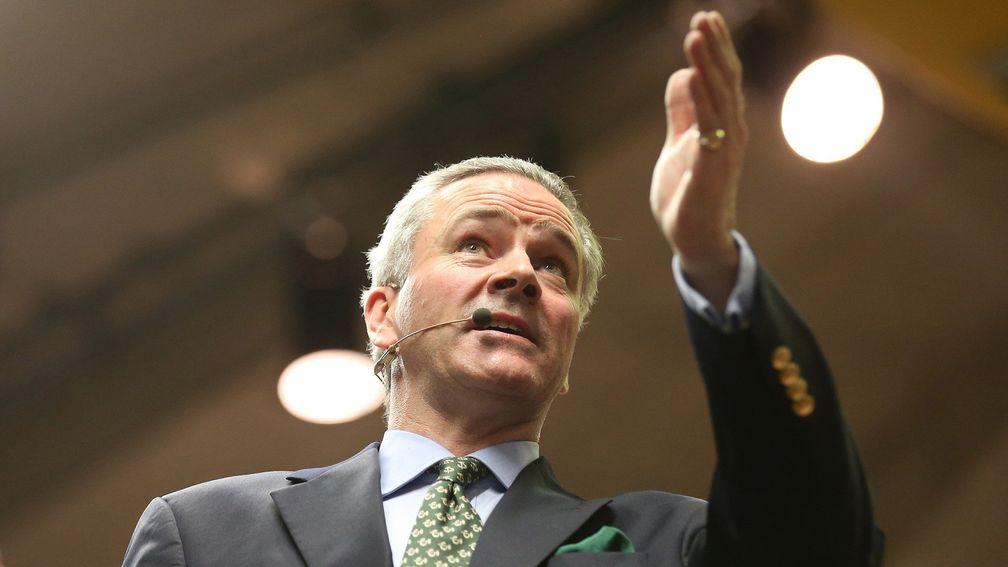
However, asked if he can see a solution to the problem, Beeby admits: "Not necessarily, no."
Beeby believes advances in technology will become more apparent in thoroughbred sales, while not replacing the traditional auction ring marketplace.
As for who might be making the big purchases over the coming years, he says: "The market is remarkably resilient and able to rejuvenate itself. I'm old enough to remember people asking what would we do if Robert Sangster never bought another yearling. In the last ten years the Al Thani family has got involved while other people have come and gone. I think the wheel will keep turning and the marketplace won't change dramatically."
Across Britain and Ireland Beeby fears finding people who want to work with horses will continue to be hard. Increasingly that staffing crisis is a global issue – and, according to Beeby, taking a worldwide perspective will be important on a number of fronts.
"There has to be a major debate about the harmonisation of rules internationally," he says. "To the best of my knowledge horseracing is the only international sport where you have different rules in different jurisdictions. That's lunacy.
"Overall, some things will change during the decade, but what will remain at the heart of everything is the excitement of watching thoroughbreds battling it out on racecourses. We should be careful to make sure we message the wonders of that in a positive way, rather than let the negativity overtake us."
Harry Charlton: everyone needs to pull together
At the start of the new decade Harry Charlton will not be a licensed trainer, but by the end of it he might well be. As such, Roger Charlton's son and assistant has a vested interest in racing performing well over the 2020s – and he sees reasons to be upbeat.
"I still think we should all be excited by the strength of our racing," says Charlton. "We have Flat racing, jump racing, different racecourses, different festivals. It's so much more diverse than racing elsewhere around the world and we get some amazing, good news stories.
"The big challenge is to ensure our Pattern remains strong because we're increasingly going to be competing against higher prize-money around the world. Thanks to the Pattern our horses still have a value. Without it we'd struggle to hold on to our mantle for having the world's best racing."
A big problem in Charlton's eyes is that racing is beset by rather too many struggles.
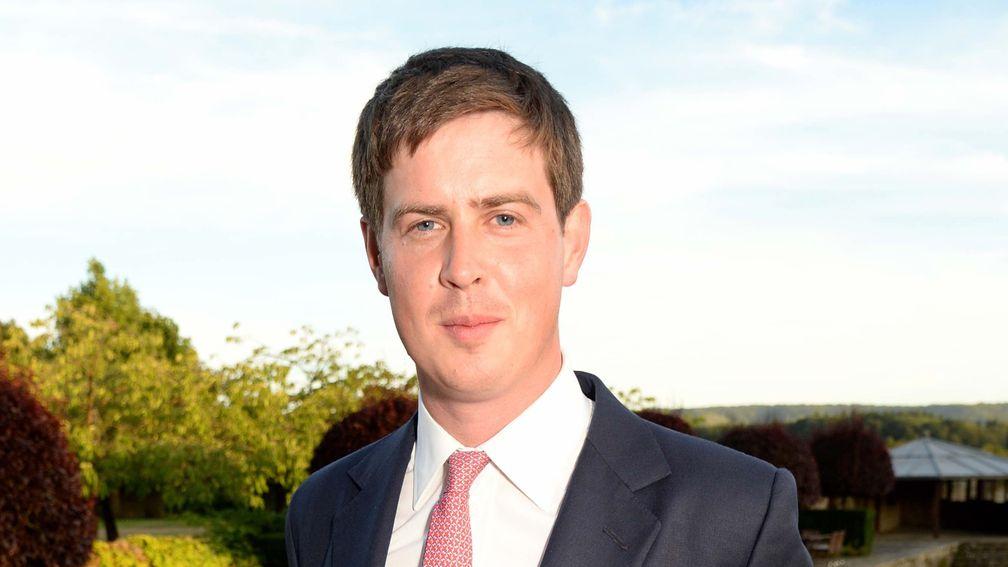
"There are so many organisations and bodies in racing," he says. "Not only do they not all pull in the same direction, the members of each individual body often don't pull in the same direction. People are frightened of losing out and so fail to see the bigger picture.
"There is no alignment, which makes the BHA powerless to move everyone in the same direction. If that can't happen it will be difficult for the sport to achieve all it should be able to achieve over the next decade.
"It's no wonder corporates and consumers aren’t keen to go near the sport. We have a constant struggle about what to push – is it the racehorse and the jockeys, or is it alcohol and a concert? There is a severe lack of cohesion between the main stakeholders, each terrified that by conceding ground they might lose out, rather than seeing the bigger picture."
With that in mind, Charlton echoes Bazalgette in a wish for one particular move towards unity, and argues: "We have a huge opportunity if we can sell our media rights as one, as opposed to RMG [Racecourse Media Group] versus Arc [Arena Racing Company], with the two sides undercutting each other."
Lydia Hislop: the Pattern must be protected
Popular broadcaster and journalist Lydia Hislop is also chair of the BHA's Flat Pattern Committee – on which Harry Charlton sits – and she too is adamant the structure must be protected in Britain against the sort of hugely valuable non-Pattern races that have erupted in Australia.
Hislop says: "At one stage there was a proliferation of sales races, which are now falling away. I similarly hope these races that rely on owners paying huge amounts to buy a place in the starting line-up are equally faddish because if they proliferate it would be a very bad thing for horseracing. Unlike the Pattern, their aim is not linked to the development of the thoroughbred.
"The moment you start taking the bricks out of the European Pattern we will see British racing start to deteriorate.
"I know we face some difficult commercial decisions but I would hate our top-level races to lose any funding because we would be stretching the elastic band of our credibility and leaving ourselves overly reliant on heritage and tradition."
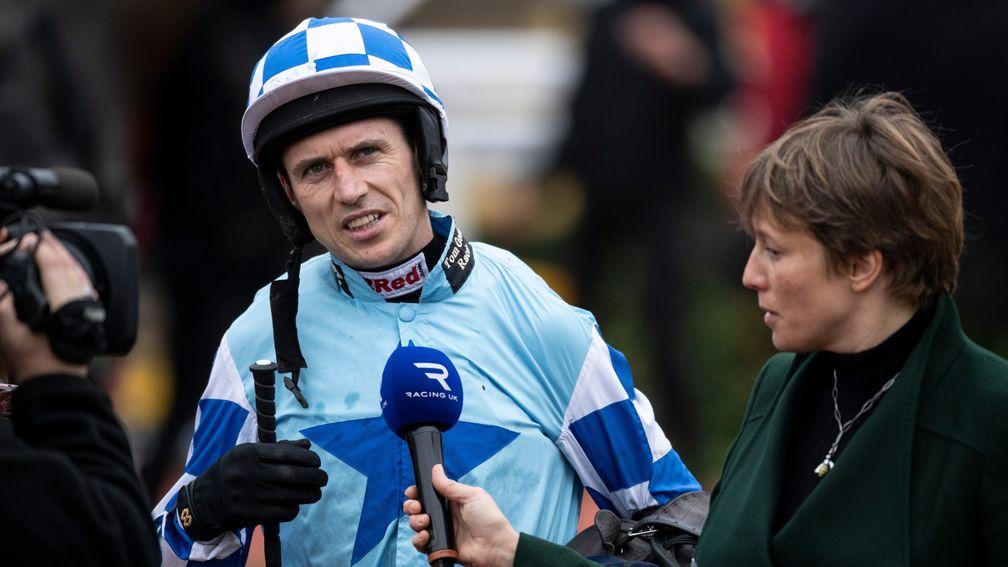
Hislop also believes efforts aimed at retaining existing fans should be prioritised over creating new followers.
"In terms of leisure everyone is choosing to do more of what they like to do," she says. "Instead of watching BBC1 for the evening, people download a whole series and enjoy it in its entirety. In that sense, racing is in a strong position because we have people who are utter adherents.
"I understand the commercial aspect of broadening the sport's appeal and we mustn't be complacent, but I would prefer we concentrate on sustaining the sport's appeal to make sure our existing followers are properly catered for and that they then pass on their love of racing to other people."
Like others, Hislop expects welfare and the whip to be dominant themes in the narrative of the coming decade.
She says: "I don't believe the whip is a welfare issue and I feel the changes that were introduced to the rules had a massively positive impact in the way the whip is used.
"I would like to see a crackdown on using the whip when a horse is out of contention and also in relation to cynical use to trigger totting-up bans. However, I fear the whip will be gone by the end of the decade because I think we'll have talked ourselves into that position."
Brian Kavanagh: racing will go ever more global
More than one hat is worn by Brian Kavanagh. As well as being Horse Racing Ireland's long-serving chief executive he is also an executive chairman of the International Federation of Horseracing Authorities. Not surprisingly, then, as he looks to the future he also looks far and wide.
"I go into the next decade with optimism," says Kavanagh. "There are always challenges but also always opportunities.
"Racing is going to become much more globalised. The rate of familiarisation with horses and racing in other countries accelerated hugely in this decade and it will accelerate even further. I think in ten years' time we'll almost be as familiar with the fields and the form at Flemington as we are at Leopardstown.
"This may be the decade in which we can open up international competition in South Africa. I also think this will be the decade in which we see a change in the policy towards medication in the United States and I'm optimistic we can drive towards a single global policy on medication and prohibited substances."
The subject of medication brings Kavanagh on to the even bigger subject of welfare.
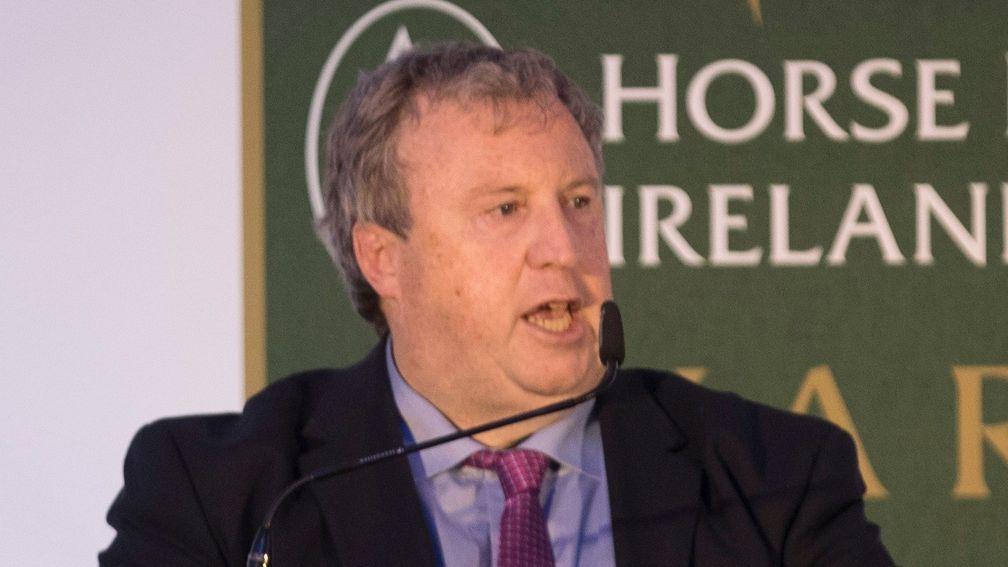
"The main challenge for racing will be in justifying what we do to the general public and politicians," he predicts.
"However, I think by the end of the decade we can be in a very strong position with regard to the treatment of horses and humans in our sport. We'll be able to tell the story of racing and show the care and attention given to participants much better.
"There are questions now being asked of our sport that were never asked in the past. I'm confident we'll be able to answer them in a way that validates what we do and how we do it. Racehorses are beautiful animals but without racing we don't have those beautiful animals."
Unlike a number of other leading holders of power, Kavanagh is happy to see the whip remain as a tool of encouragement, thus positioning himself much more closely with the majority of jockeys and trainers.
"I'm not a believer in abolishing the whip for encouragement purposes," stresses Kavanagh. "I defer to horsemen on the whip. I think provided it is used within the rules it's something we should be able to explain and justify. I also think it would be very hard for one country to take decisions on the whip in isolation.
"The whip is not something that should be at the top of our priority list. We should instead be concentrating on overall horse welfare and the full traceability of horses during their life."
Shuji Kashiwada: the public's trust has to be maintained
When looking forward to the 2020s, Shuji Kashiwada, general manager of the Japan Racing Association's international department, concentrates on Japanese racing. What is striking is that even in a nation where by most barometers the sport is a roaring success, the challenges are often similar to those faced elsewhere.
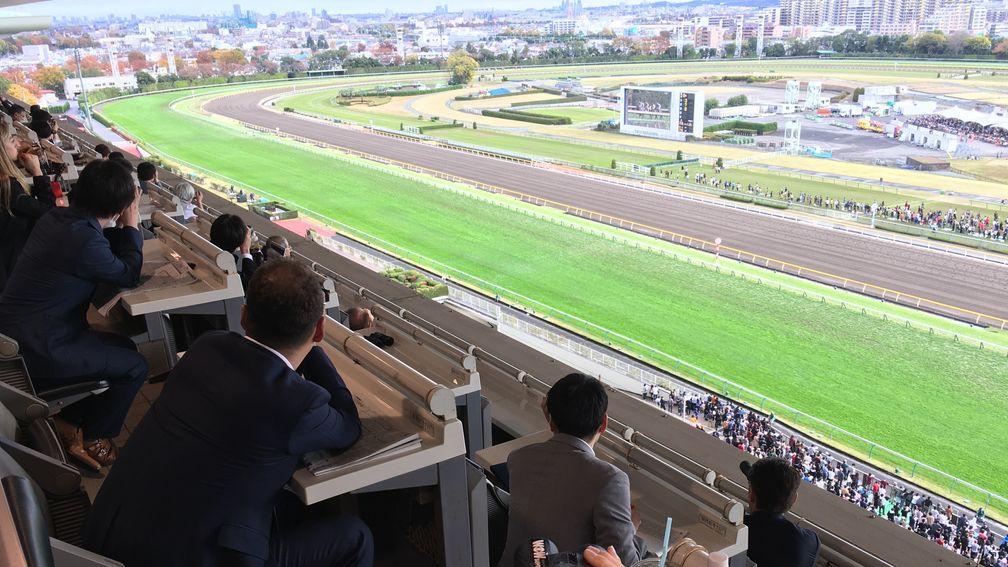
"First we must continue to maintain the trust of our customers and the public," says Kashiwada.
"It is also important for us to strengthen the foundations of the horseracing industry by continuing to increase the sport's fan base, upholding the sport's integrity and increase betting turnover by offering more attractive races. We must also appeal more to younger generations and women.
"I believe it will be more important for the horseracing industry to contribute to society, through caring for retired thoroughbreds and a commitment to equine culture, so that the public sees horseracing in a positive way. I also think the status of racing as a form of entertainment will be improved through further global interaction."
They are the opportunities and challenges. Kashiwada admits there are also dangers and in Japan he points to an impending shortage of labour and a population that is getting older and smaller.
Sheila Lavery: prioritise the sport's core fans
County Meath trainer Sheila Lavery has enjoyed the most successful year of her career in 2019. She came to training later than most in her profession but has been involved with horses all her life and fears the influence of those who have not.
"What scares me is the attitude of the 'do-gooders'," says Lavery.
"I think the way things are going it will become a bigger deal. There is so much political correct rubbish influencing our lives. Unless someone stands up against it things will get worse. It may not be too big an issue in Ireland, but Ireland and the UK are so closely aligned in racing that if there are big changes in the UK the knock-on effect here would be significant.
"I also think in racing we forget about the core group of people who regularly follow the sport, They need to be rewarded more over the next decade. We keep talking about getting new people but I think we should work harder to ensure those core racing fans continue to go racing."
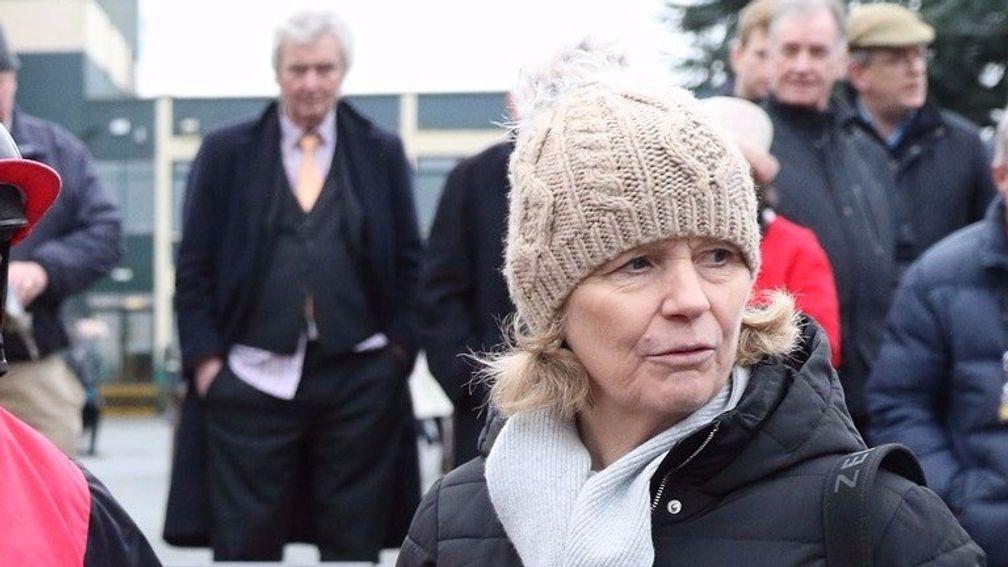
Those who go racing in Ireland have arguably never seen a sport dominated by so few camps. Having sent out a career-best 17 winners this year, Lavery is not one of the superpowers but she thinks those in her position can survive.
"It is getting harder to win races here," she admits. "It's very difficult to take on the might of Ballydoyle and next year we'll have Donnacha O'Brien on the scene as well.
"Having said that, I'm positive for the future as there is a very good international market for our horses and that should keep us trading. If a horse finishes second to a good Ballydoyle animal it creates a market for that horse.
"So long as racing stays healthy internationally I do think we'll all survive, although we might have to change our modus operandi slightly. Ireland is a trading country, so as long as we can keep trading we'll be fine."
Lavery wants to see greater recognition for owners – including in the graphics used on television – and also wants to see jockeys allowed to ride a little heavier than is currently the case.
"The weights should go up by a couple of pounds as it would make a massive difference to a number of riders," she says.
"When you look at modern apprentices they're so much taller than apprentices used to be. The big thing in sport now seems to be hydration, yet racing goes completely against that. We ask dehydrated jockeys to make split-second decisions that could be damaging to their wellbeing and the wellbeing of others.
"I really don't think a 2lb rise would be detrimental to horses. Most of us have yearling fillies at home but very few of us have 8st people riding them every day."
George McGrath: more whip regulation needed
In the National Association of Racing Staff's December newsletter, George McGrath, the organisation's chief executive, wrote a column that ran under the headline: 'The whip, it's doomed!'
The piece began: "Regardless of whether you agree with that statement, the fact is we can probably count the years we have left when jockeys can use the whip on one hand."
That is not many years at all – although, away from the article, McGrath stresses he does not personally want to see the whip disappear.
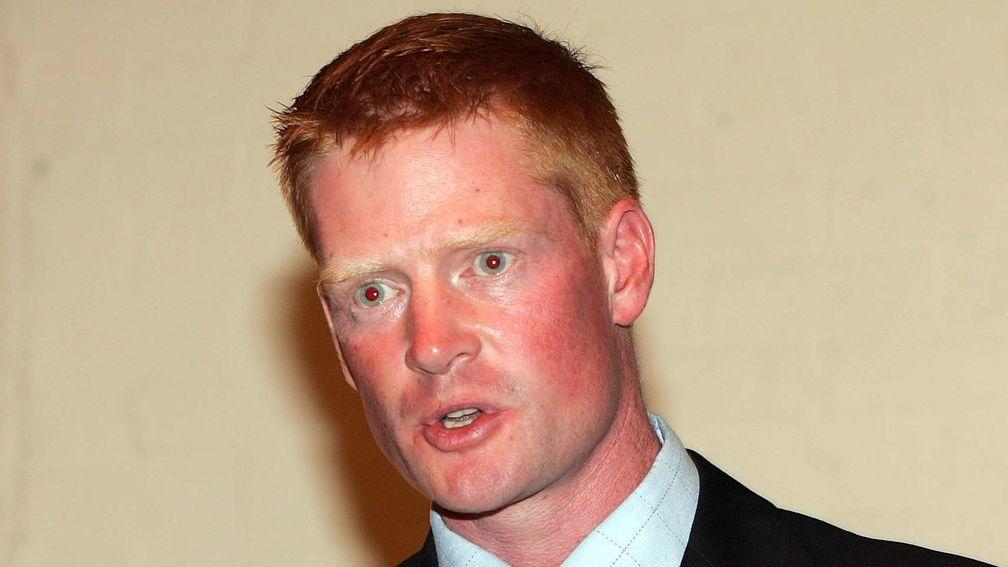
"We need to be in control of our destiny and not be pushed around by ill-informed views," he says.
"I therefore think the whip will be more regulated and we won't be using it as much as we currently do. I don't want to see it banned, and I'm wholly opposed to the disqualification of winners, so what I would like to see are harsher penalties for jockeys. At the moment, they don't take it seriously enough."
Attracting new stable staff and retaining those already employed has been a struggle in the last decade. McGrath is hopeful we have come through the worst.
"I would like to think the staffing crisis will finally end," he says. "If there is going to be a shortage of staff it will be linked to fewer and fewer people being at a weight that allows them to ride thoroughbred racehorses.
"We're going in the right direction, and in the next decade I want a career in racing to be regarded as exactly that, a career, one that enables you to earn enough to get on the property ladder, drive a nice car and own a nice house."
McGrath is also keen to see increased emphasis on continuous personal development.
He explains: "As an industry we continue to license employers without requiring them to take any further training or development once licensed. The same applies to the staff in senior positions. There are courses available in management at the British Racing School and National Horseracing College but being able to take them is at the whim of the employer, when it ought to be compulsory.
"Placing untrained staff in positions of authority without the necessary training is unfair on the staff, the person promoted and a poor reflection of the racing industry. Continuous personal development is compulsory in almost every other industry and it's time racing caught up."
Nick Rust: we must make the right choices
As chief executive of the BHA since 2015, Nick Rust has rarely had a quiet moment. He can expect more of the same as we enter the next decade.
"In the spirit of Dickens’ A Christmas Carol, it’s my view racing has a choice about the future yet to come," says Rust.
"There’s a future in which the sport fails to adapt to changing public attitudes towards gambling and animal welfare; to the changing demographics of the UK and the different expectations of consumers in a digital world.
"If we make that choice, or perhaps fail to make any choice and just drift along, I don’t believe we can expect a prosperous future. Our sport may seem irrelevant to some and be misunderstood by others. If that happens we'll be accepted by a diminishing number of people. Our sustainability may be threatened. We'll be the ones having things done to us, rather than the ones who are doing.
"I much prefer a future in which we do adapt with confidence and clarity and in which we make positive choices and, like other sports, take control of our own destiny. We can’t choose the challenges we face, but we can choose how we respond."
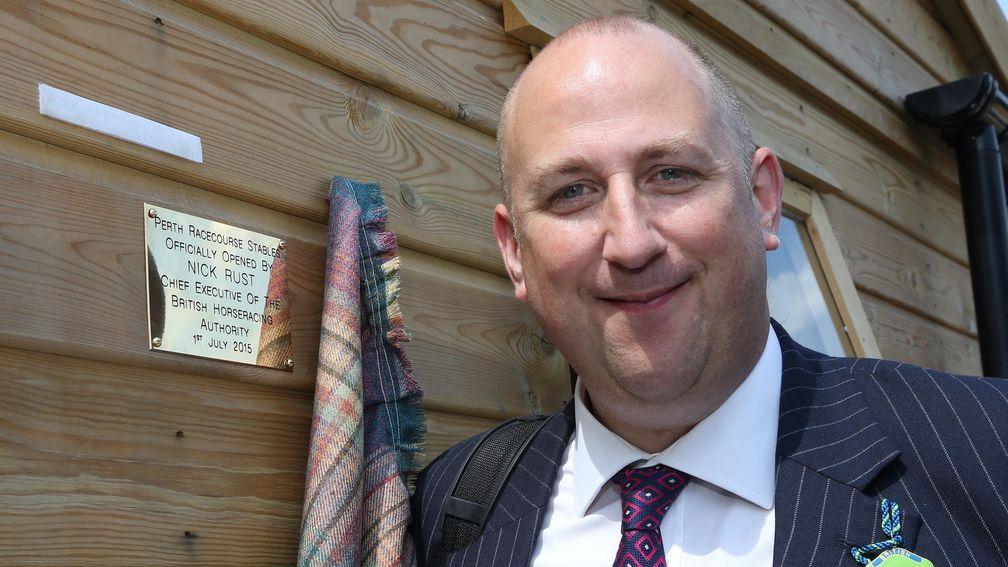
We can expect the nature of those positive choices to be revealed next year. Outlining how he wants the sport to respond, Rust says: "We’ll take pride in our traditions but recognise we need to make some changes to stay relevant in modern Britain, anchored in the beliefs and values that make racing great.
"We’ll use the welfare strategy produced by the industry next year to lead the conversation about the role of animals in sport, not follow it.
"We’ll be talking about how racing enriches the lives of horses and transforms the lives of people – how every horse bred to race has a life worth living.
"We’ll have demonstrated to politicians that racing can continue to be trusted to regulate itself and they no longer need to promise to intervene."
Summing up his aspiration, Rust adds: "Racing will have a distinctive position in the sporting landscape as a sport for everyone, diverse and inclusive, safe for families to enjoy, recognised for its commitment to community and the wellbeing of all the people who work within our industry.
"It’s up to us to make the choice for the next decade. No one else can do it for us."
Tom Scudamore: racing must stay on mainstream TV
Not only is Tom Scudamore one of the weighing room's best riders, he is also one of its most cogent thinkers. Asked about the 2020s, the first subject he raises is the sport's presence on mainstream television, which has yet to be guaranteed beyond the end of next year due to the sport's delay in signing a new deal with ITV.
"I think it's vital the sport stays on terrestrial television," says Scudamore.
"I don't think it's a coincidence Ben Stokes won BBC Sports Personality of the Year for the first time in the same year the Cricket World Cup Final was shown on Channel 4. Ben has been performing at that level for years but he really entered the public's consciousness because the World Cup Final was shown on terrestrial television."
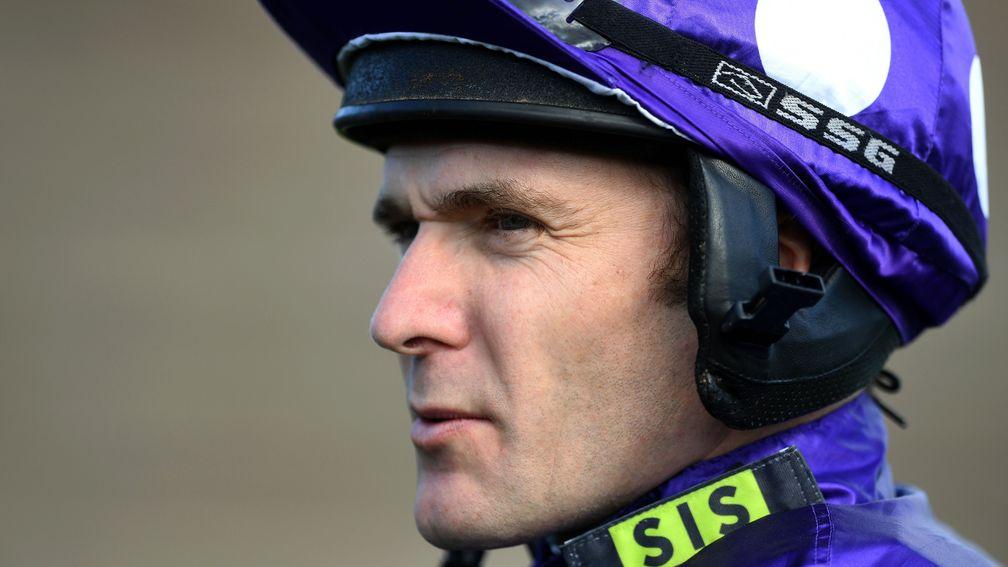
Like all horsemen, Scudamore understandably wants to see proper prize-money increases to protect the sport's ownership base. With ever greater prices being paid for young horses, that could be particularly important in jumping.
Scudamore says: "I'm proud National Hunt racing has maintained its popularity over the last ten years and it seems to be in a healthy state. However, when you move to the sport's grassroots I know point-to-pointing is not as strong in some places as it used to be. That must be a slight concern.
"I'm based in the south-west, where pointing is doing really well – and because of that racing at Exeter, Wincanton, Taunton and Newton Abbot all get good crowds. It therefore worries me that in some areas pointing's popularity seems to be on the wane."
Far from on the wane are the sport's senior riders, who have increasingly become more senior than ever before, a trend Scudamore expects to be maintained, with inevitable consequences for those seeking to break through.
"The older generation is now hanging around for longer," he says.
"When I first entered the weighing room, a jump jockey riding at 37 would have been considered ancient and you would have been laughed out of town not that long ago if you suggested a jump jockey could be champion at 42.
"At 37 I'm only the ninth or tenth eldest still riding. There are lads who are five or six years older than me. The injuries that would have stopped you 15 or 20 years ago don't stop you now. It's great for the likes of me, but it represents a big challenge for the young jockeys trying to make their names."
Then, offering an impressively rounded bigger-picture perspective, Scudamore adds: "The older I've got the more I've realised Dad is right in saying we are simply carrying a torch that should be passed on to the next generation. Whether we're in charge of running racing or taking part in the sport, it's all our responsibility not to drop the bloody torch!"
Jamie Snowden: promote racing's strengths
For trainer Jamie Snowden – who has already thundered past his previous best total of winners for a season – the primary topic is the one raised most in these interviews.
"My biggest worry is the welfare issue," he says.
"I think racing does a brilliant job with horse welfare and the vast majority of participants treat welfare with the utmost importance, yet people from the outside are very quick to crab racing. In response racing seems equally quick to raise its defences, as opposed to promoting what we do.
"I worry racing might turn against itself, leading to BHA vets controlling what can and cannot run. We saw a vet preventing Marmelo from running in the Melbourne Cup, and I worry if the BHA follows that sort of lead we'll end up with the BHA vets basically training the horses. You see that even with us being asked to trot up horses before races. If you can't trust a trainer to send a sound horse to the races, why are we licensed?"
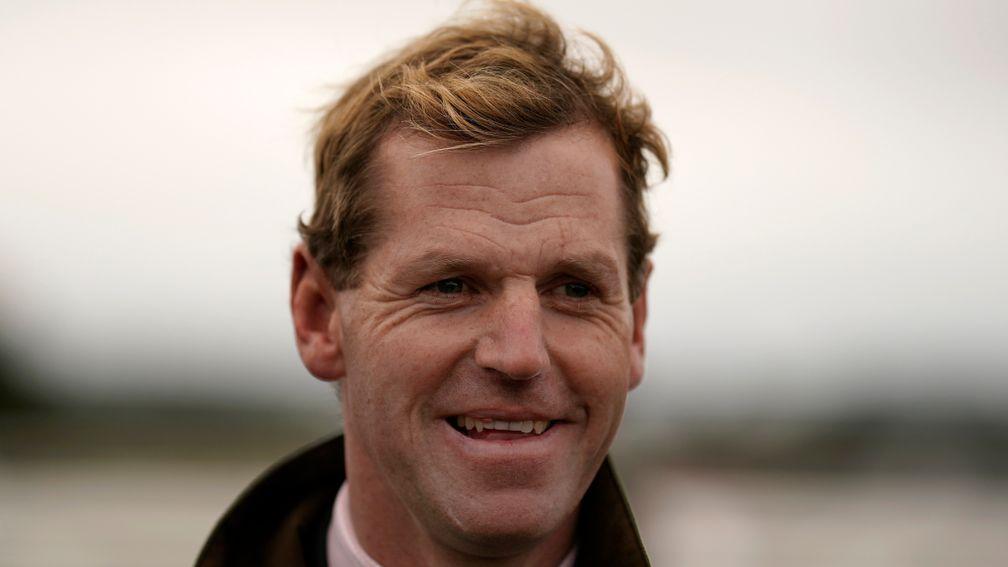
New to the next decade will be the Cheltenham Festival's Grade 2 mares' chase, set to be introduced in 2021.
"I'm a big fan and feel the race can only promote the breed and encourage more people to be positive about breeding fillies," says Snowden, adding: "I know a lot of people have been against the race but it can help the sport. By the end of the decade it will be seen as a positive introduction by developing and strengthening the breed in the way the Mares' Hurdle at the festival has done."
Rod Street: persuade those on the sidelines
The chief executive of Great British Racing and British Champion Series is famously positive, yet Rod Street speaks with notable frankness – and optimism – when giving his take on the next ten years. He wants the sport to believe in itself.
Street says: "As the sport races into a new decade it has an opportunity to grow, paradoxically, from the basis of its biggest current challenge – making headway with those people not currently interested in the sport.
"Racing is running hard to stand still. Behind some positive attributes – extensive terrestrial television coverage, a healthy racecourse following, loyal and generous sponsors and lucrative media and betting revenues – the sport is struggling to maintain its place in society.
"Challenged on all sides by new sporting formats, an array of leisure choices, changing attitudes to welfare, gambling and anti-social behaviour, as well as competition from other betting products, racing is losing its relevance.
"By facing these challenges the sport has an opportunity to present itself as relevant, and its best chance is speaking to those people with whom we're not currently connecting. Racing must position itself as inclusive, exciting, passionate, competitive and ethical, and can do so by talking with greater self-confidence."
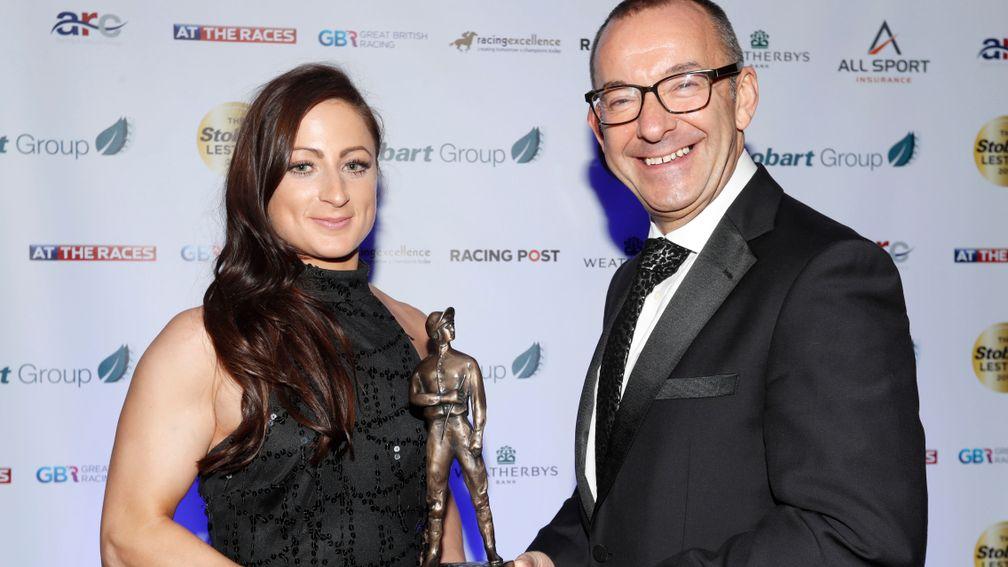
Moving on to welfare, Street argues the ideal approach is not to fight with the non-believers but to attract those who as yet have no beliefs.
"There’s a saying that the brook that babbles loudest is often the shallowest, and this is true of the animal welfare lobby," he says. "Noisy, yes, but not deep in numbers – at least not yet. And responding to that lobby won’t win the argument. It’s persuading people on the sidelines about how well racehorses are treated and how much love and passion underpins their care.
"We have no shortage of stories to tell here – and in an increasingly urbanised society we need to keep hold of and celebrate the horses being our heroes."
Switching to diversity, Street says: "It’s about demonstrating to those that are indifferent that we are inclusive, despite not looking very inclusive. The average racing crowd looks white, middle-aged and middle class. Swathes of people will look in on us and think, 'That’s not for us. We don’t see ourselves there.' We have to change that – and we change that by providing genuine examples of how inclusive we are and creating role models.
"Through its work with Khadijah Mellah – who created one of the biggest sporting stories of the year – and with its successful Under 18s Race Free campaign, GBR demonstrated in 2019 that racing offers something for everyone. Our intention is to build on that in 2020 and beyond.
"Britain is a nation of sports lovers, a nation of animal lovers, a nation that enjoys a flutter, a nation that loves a day out. By positioning horseracing within that and welcoming innovation, the next decade will provide an opportunity for growth."
Giles Thompson: racing needs to get better at change
Things are not that different on the other side of the world. Just ask Racing Victoria's British chief executive Giles Thompson.
"On the optimistic side I think racing authorities have modernised dramatically, which gives them a better understanding of their customers," he says.
"My cautious side comes from the broader community now having far greater expectations regarding what racing should and shouldn't do.
"Here in Victoria we talk about the non-negotiables, namely equine and participant welfare and integrity – and we have to get them right.
"In the past the wider community might have shrugged its shoulders. Now it doesn't. Part of that is down to cultural change – and I'm not sure we're very good at cultural change in racing or, in fact, change in general. I think we do have to change and we have to change the way we address those non-negotiables."
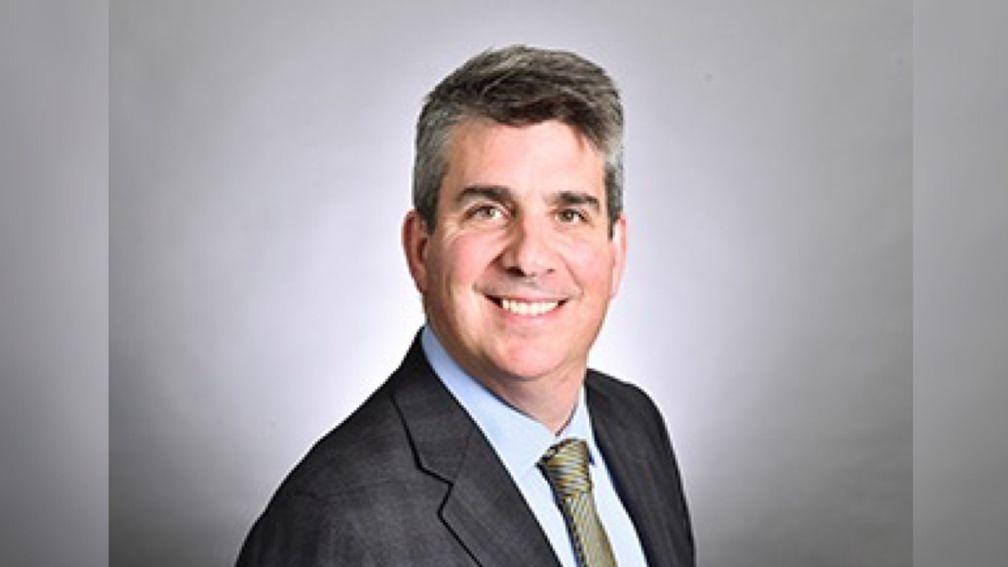
Addressing the most important of the non-negotiables, Thompson stresses: "I think we'll see a shift among participants to acknowledge each individual has to take a greater responsibility regarding the broader view of the sport.
"We have to understand our obligations have extended. We have to advance responsible breeding. That means we should not breed horses above our requirements who really have little chance of getting to the track. We have to minimise the number of horses who do not make the track and maximise the opportunities for horses after their racing careers are over. We don't have a legal responsibility to do any of that but we absolutely have a moral responsibility."
Thompson also believes racing has a responsibility to act on the whip.
He states: "I don't see the need for things to change regarding using the whip for safety but I would be very surprised if in a decade's time it is still being used for encouragement and persuasion. It's up to us to grasp the nettle and manage the change. If we don't, I think the community will manage it for us."
Despite the birth in Australia of enormously valuable races such as The Everest and All-Star Mile, Thompson considers the Pattern will remain "fundamentally important". It is something that unites the sport's leading nations – and a united approach is more vital than ever.
"The real challenges are for racing as a whole," declares Thompson.
"It shouldn't be Victoria against New South Wales or Australia versus the UK. That's a distraction and we shouldn't waste time or resources on it. If we do, we'll wake up one day and realise racing has become irrelevant."
This article is available free as a sample. Members can read exclusive interviews, news analysis and comment available from 6pm daily on racingpost.com
Published on inFeatures
Last updated
- Top racing books of 2024: must-reads of the year, from the perfect Christmas stocking filler to a pioneering jockey
- Captain Marvel: how a modern master of Cheltenham and a genuine pioneer executed one of the shocks of the year
- 'We’re delighted with how it's going' - joint-trainers prepare for exciting year after Flat string is doubled
- 'We’ve had to work hard this sales season' - Kennet Valley seeking to build on success with biggest string
- Alastair Down's archives: the great writer recalls Coneygree's glorious victory in the 2015 Cheltenham Gold Cup
- Top racing books of 2024: must-reads of the year, from the perfect Christmas stocking filler to a pioneering jockey
- Captain Marvel: how a modern master of Cheltenham and a genuine pioneer executed one of the shocks of the year
- 'We’re delighted with how it's going' - joint-trainers prepare for exciting year after Flat string is doubled
- 'We’ve had to work hard this sales season' - Kennet Valley seeking to build on success with biggest string
- Alastair Down's archives: the great writer recalls Coneygree's glorious victory in the 2015 Cheltenham Gold Cup